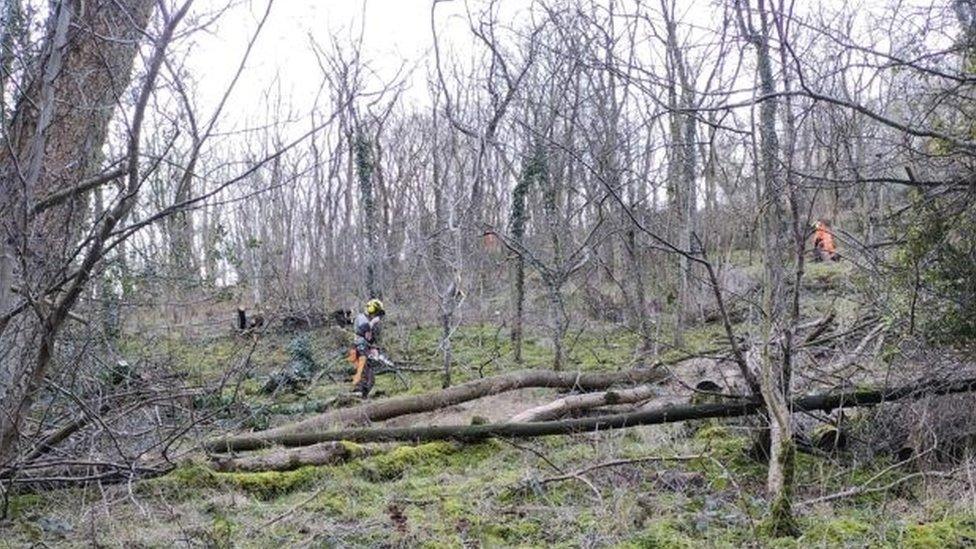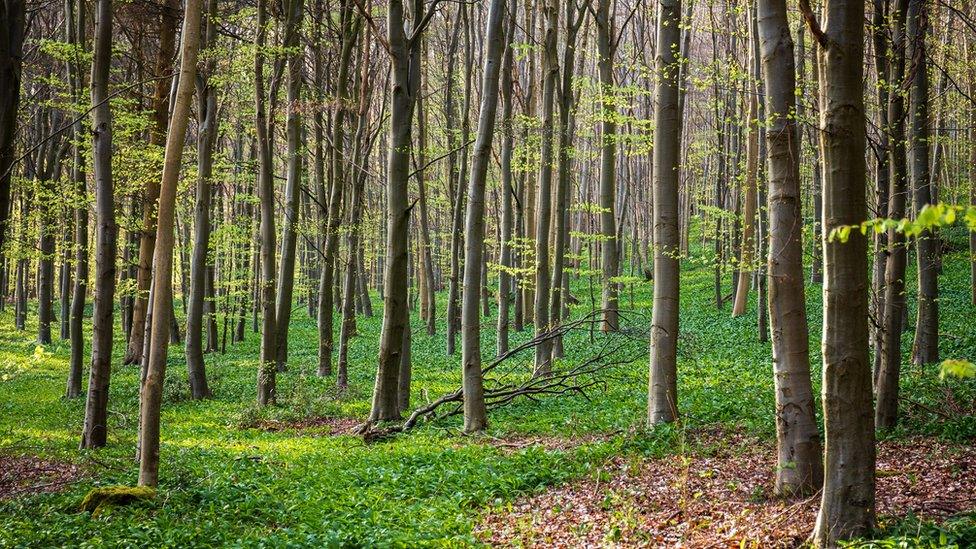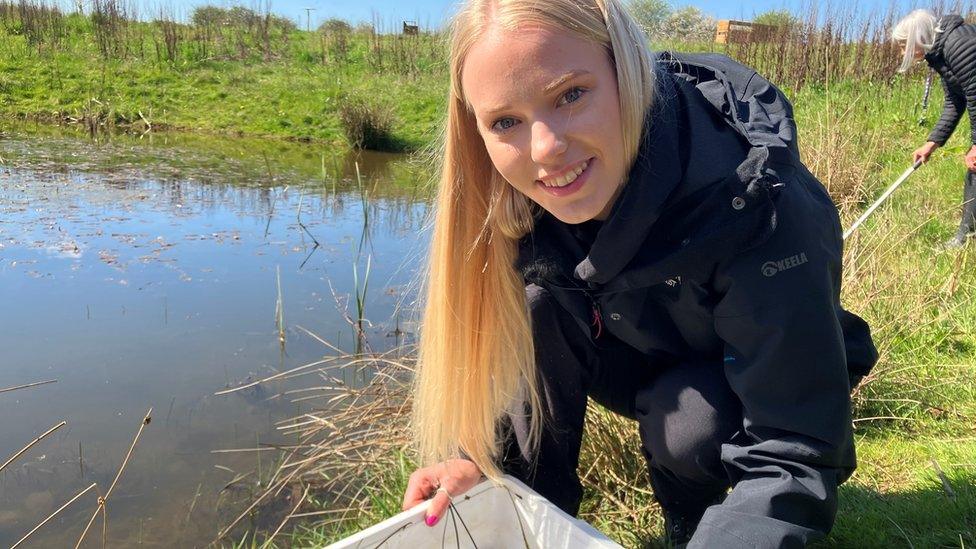Peak District: More than 31,000 trees planted to tackle ash dieback
- Published

About 99% of ash trees were found to be infected with ash dieback in the Peak District Dales in 2020
More than 31,000 young trees have been planted in Derbyshire to tackle ash dieback and restore ravine woodlands.
Restoration teams began the five-year project in the Peak District Dales Special Area of Conservation in September 2020.
Natural England, which is leading the £5m scheme, said about 99% of ash trees were found to be infected.
Now nearly 60 acres of ravine woodlands have been restored in the Derbyshire Dales National Nature Reserve, it said.
Natural England said ash dieback had been detected in low levels within the conservation areas in 2016.
However, an estimated 99% of ash trees had been infected by the disease by 2020.
Since then teams have carried out restoration work by replacing trees lost to ash dieback with saplings during the autumn and winter seasons.
Alongside ash, trees planted include small-leaved lime, large-leaved lime and wych elm.
Natural England added work to safeguard the species was "vital" for maintaining ecosystems, and species living in the areas.
The project was awarded £3.6m grant from the European Union's LIFE Programme and received £1.4m from several partnerships including Chatsworth Estate, Derbyshire Wildlife Trust, Peak District National Park and Derbyshire Dales District Council.

Follow BBC East Midlands on Facebook, external, on X, external, or on Instagram, external. Send your story ideas to eastmidsnews@bbc.co.uk.
Related topics
- Published2 May 2023

- Published25 April 2023
